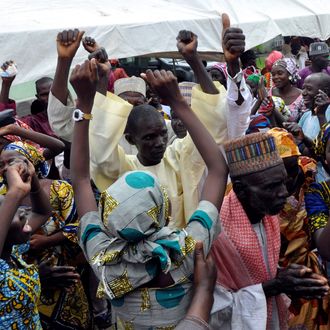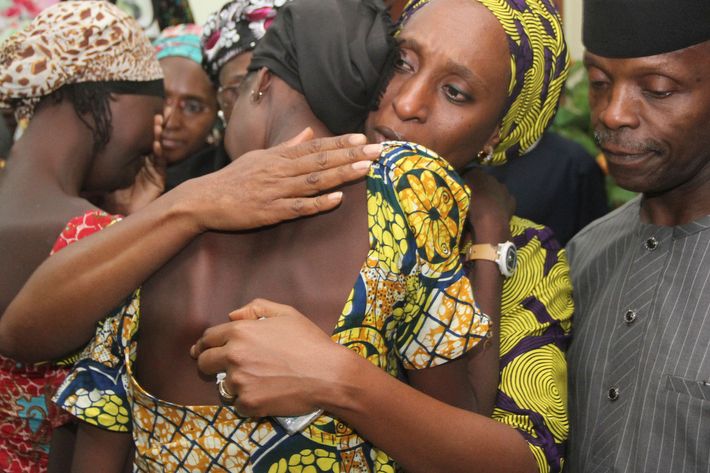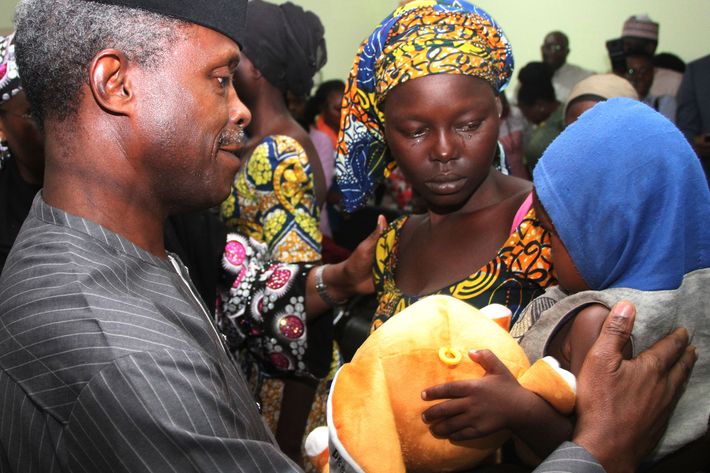
Last week, Boko Haram released 21 of the more than 200 Chibok schoolgirls the terror group kidnapped in April 2014. The girls were finally reunited with their families in Abuja, Nigeria’s capital, on Sunday — after more than two years in captivity.
Families hadn’t seen or had much word about their daughters, nieces, and sisters since the night Boko Haram — which, roughly translated, means “Western education is a sin” — stormed a school on April 14, 2014, where the young women were preparing for exams. “I felt like it was the day that I born her into this world,” Ruth Markus, a mother whose daughter was freed, told the New York Times. “I danced and danced and danced.”

The Nigerian government is currently negotiating for the release of 83 more girls with a Boko Haram splinter group that’s more closely affiliated with ISIS. Boko Haram, which pledged allegiance to ISIS in 2015, has started to fracture, and that seems to have helped create the conditions for the release of the first 21 girls. Abubakar Shekau is the self-proclaimed leader of Boko Haram and was in charge of the group when the schoolgirls were abducted in 2014. But this summer, ISIS declared a different person, Sheik Abu Musab al-Barnawi, as the leader of the Nigerian militants, which ISIS sees as its West African arm. Shekau, however, is still claiming he’s in power — or at least those loyal to Shekau say that. (Shekau has repeatedly been reported killed by the Nigerian government, though his death has never been confirmed. He allegedly released a video in September, but it’s of such poor quality it’s hard to confirm for sure that it’s Shekau.) Still, the 197 girls who are are still missing are allegedly being held by Shekau, a spokesman for Nigeria’s president told Reuters.
About 276 girls were abducted by Boko Haram in April 2014; 50 managed to escape on the night of the kidnapping. The 200 others were taken prisoner — reportedly either forced to marry Boko Haram fighters, or serve as slaves to the militants. Prior to the release of the 21, only one girl had been found alive after the abduction. Amina Ali Nkeki was found wandering the Sambisa Forest — a reported Boko Haram stronghold — with her 4 month-old baby and a man, also believed to be a prisoner.

The Nigerian government negotiated the freedom of the abducted girls with the help of the Swiss government and the Red Cross. The terms of the deal are a little shady: Some sources say the girls were released as part of a prisoner exchange, others have said Boko Haram received ransom payments. The Nigerian government has denied any swap, and said it wasn’t “aware” of any payments made to the group. The Swiss government refuted the ransom allegations.





























